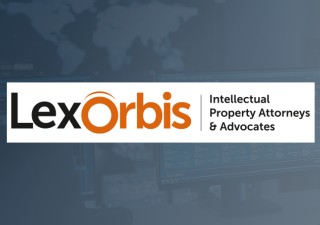Trademark Infringement through Operation of a Website
04 October 2012

The instances of online trademark infringement are varied and numerous, with the use of one’s mark on another’s website or a use signifying association or authorization.
Since use of the internet is devoid of boundaries, the implications relating to infringement on the internet have to be considered carefully. However, the courts are faced with one peculiar issue: whether merely operating a passive website should expose a party to jurisdiction in all states where the website can be accessed.
An instance arose recently when the Delhi High Court delved into the question of passive operation of a website to advertise an infringing product in Lilly Icos v. Richie Laboratories CS. Trademark infringement involves the element of confusion and deception as to the source, origin or quality of a product. Being a visual symbol created to distinguish one’s product in respect of visual appeal or efficacy from a host of other identical and similar products, it builds up reputation and profits over a period of time.
The trade dress incorporated in a product is an extension of trademark identity and makes use of specific distinctive features to create their impact in the minds of consumers. Trade dress is gaining ground in respect of pharmaceutical products as well.
In the present case, the plaintiff was the manufacturer of a composition for treating male erectile dysfunction, consisting of the active ingredient tadalafil. The plaintiff filed an application for a fanciful and coined word – Cialis – as a trademark for the drug. The tablet sold under this trademark was given a unique shape and colour. On an internet search, the plaintiff found that the defendants were advertising on their website a tadalafil tablet with the name Tadarich, the shape and get up of which was confusingly similar to the plaintiff’s tablet.
The plaintiff claimed that since the website could be accessed in Delhi, the jurisdiction of the Delhi High Court was invoked. The website made it possible for the defendant to market the product all over the world, vide orders being placed through it.
The plaintiff however, in evidence, produced an advertisement on the website expresspharmapulse.com, regarding the manufacturing of Tadarich in Chennai.
This merely provided information regarding the nature of drug and the purpose for which it can be used and information regarding the company, but nothing beyond that. This information was not obtained by the plaintiff from the website www.richielabs.com, which was purported to be selling the offending tablet.
The court also noted that the website of the defendant did not open in Delhi, and concluded that the evidence produced was insufficient to prove that the website was responsible for trademark infringement. The court observed, “the mere fact that a website is accessible in a particular place may not itself be sufficient for the courts of that place to exercise personal jurisdiction over the owners of the website.” The position would be different if the website was not passive but interactive, allowing the users to not only access the contents thereof, but to also subscribe to the services provided by the owners or operators. Here, the cause of action would arise where the website is accessed and service utilized.
Where the website is interactive, the level of interactivity becomes relevant and in cases of limited interactivity, it may not be sufficient for a court to exercise jurisdiction. Hence, in the present instance, the court stated that it did not have the requisite jurisdiction to decide upon trademark infringement.
The plaintiff, it was pronounced, “had to show something more to indicate as to what cause of action took place in substantial manner so as to invoke the jurisdiction of that particular court.”
Thus it would have to be seen, whether the defendant's activities have a sufficient connection with the forum, whether the cause of action arises out of the defendant's activities within the forum and whether the exercise of jurisdiction in such a circumstance would be reasonable.
The non-resident defendant must do some act or consummate some transaction with the forum or perform some act by which he purposefully avails himself of the privilege of conducting activities in the forum, thereby invoking the benefits and protections. The claim must be one which arises out of defendant’s forum-related activities. The impugned website was not interactive, but merely passed information relating to the defendant company. This information in no manner could be said to be inviting any subscription from the consumers.
The court thus ordered the plaintiff to file the suit with the original documents before the competent court of jurisdiction.
LEX ORBIS Intellectual Property Practice
709/710, Tolstoy House, 15-17,
Tolstoy Marg, New Delhi - 110 001,
India
T: +91 11 2371 6565
F: +91 11 2371 6556
E: mail@lexorbis.com
W: www.lexorbis.com






